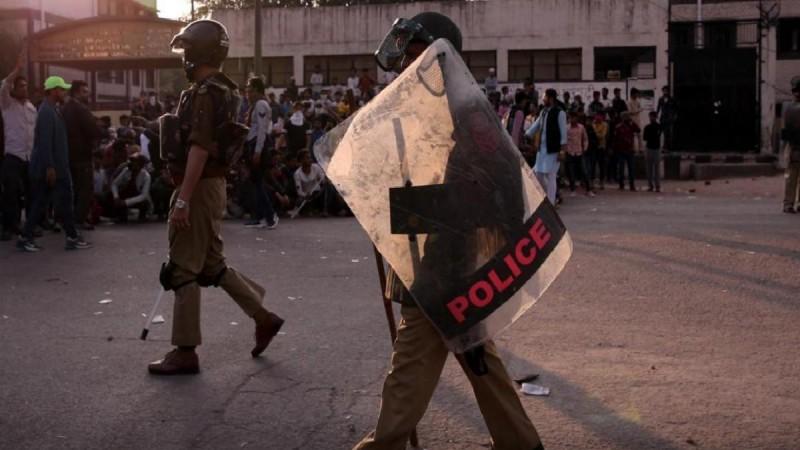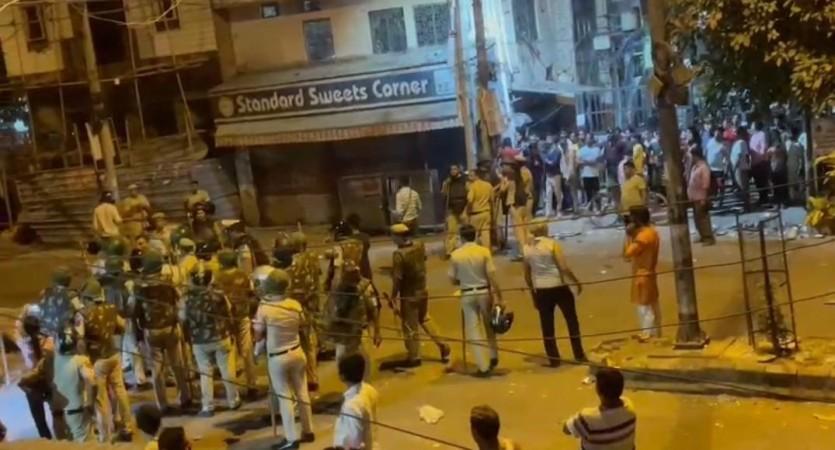A court in Delhi has pulled up the Delhi Police for falsely claiming that a complainant can identify the accused in a case pertaining to the 2020 north-east Delhi riots, while acquitting the accused Noor Mohammad of offences related to rioting and unlawful assembly.
The court also questioned the credibility of a police witness, saying "it seemed his statement was obtained falsely and belatedly".
"The fact that the state falsely cited the complainant as a witness who can identify the accused as the offender, indicates that the case of the prosecution that the offence was committed by the accused Noor Mohammad is false," Chief Metropolitan Magistrate Shirish Aggarwal of Karkardooma Courts said.

The judge also expressed doubts about the identification of Mohammad by a head constable who claimed to be an eyewitness to the rioting.
The court highlighted the head constable's failure to take action or provide evidence despite witnessing the offence.
"It is hard to fathom that a police officer who is courageous enough to make efforts to stop the mob just stood there as a mute spectator when the rioting and plundering was taking place... no explanation has been given by the said witness who is a police officer for standing by and just watching and waiting. He did not even deem it fit to make a video of the offence being committed, even though he was at a relatively safe distance," it said.
During the trial, the complainant, who was the prosecution's first witness, was declared hostile for failing to identify Noor Mohammad as the offender.
Another prosecution witness, a head constable, admitted to not reporting the offence or identifying the offenders. The court deemed the testimony of the head constable unreliable due to contradictions.

The judge found it hard to believe that the head constable, as a police officer, did not report the offence or make any attempt to arrest the offenders.
The court said: "It is hard to believe that a police officer who has witnessed an offence being committed in his area of posting did not make any complaint in this regard. He never reported the matter to his police station for registration of FIR. He did not call the number 100 to seek immediate police aid. He did not make any attempt to arrest any of the offenders.
"... he has claimed that he tried to stop the mob, but could not control the same. If he has the courage to make efforts to stop the mob, he could have also made attempt to arrest the offenders. He did not even bother to ask the complainant whether the complainant had reported the matter to the police," the court added.

The court also noted that the head constable and the complainant being present at the police station during Noor Mohammad's questioning appeared too coincidental.
"Admittedly, the complainant did not frequent the police station and it was only the first time after registration of FIR that the complainant had come to the police station to enquire about his case," the court said.
The court concluded that Mohammad could not be convicted based on mere probabilities or suspicions, as proof was required for conviction.
It may be noted that JNU student Umar Khalid has also been in custody awaiting trial since September 2020 in the case and recently completed 1,000 days, 41 days short of the record held by Jawaharlal Nehru during the British regime.
(With inputs from IANS)









!['Had denied Housefull franchise as they wanted me to wear a bikini': Tia Bajpai on turning down bold scripts [Exclusive]](https://data1.ibtimes.co.in/en/full/806605/had-denied-housefull-franchise-they-wanted-me-wear-bikini-tia-bajpai-turning-down-bold.png?w=220&h=138)



